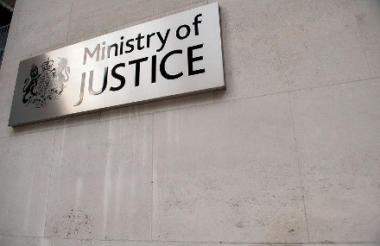Smaller, local and specialist criminal justice charities have been “shut out” of a £200m Ministry of Justice (MoJ) programme, according to the umbrella body Clinks.
Today the MoJ announced which organisations it had awarded nearly £200m in contracts to deliver rehabilitation services.
Clinks said that the voluntary sector would be the main partner with the Ministry of Justice, but argued that the process had been “so complex” that many charities had decided against bidding at all.
It also warned that small, local charities had not been given a role delivering services for their communities, and had been frozen out of services in Wales completely.
However, the government praised the “expertise and support” of charities which had won contracts.
Government: ‘Charities will play crucial role’
The value of the contracts won by the voluntary sector was more than the £100m predicted last year.
In total £195m has been awarded to 26 organisations across England and Wales to provide support services that help reduce reoffending, such as employment and housing advice. 23 of these organisations are charities.
The government has frequently been criticised for making it too difficult for charities to bid for contracts such as this and had tried to make this process easier for charities.
This time around two-thirds of the funding has been awarded to registered charities. The government also expects another 50 organisations, mostly in the voluntary sector, will be involved through the supply chains of the lead providers announced today.
Alex Chalk, the prisons and probation minister, said: “Tackling things like homelessness, unemployment and illiteracy is vital to our drive to cut crime, but these issues cannot be solved by our brilliant probation staff alone.
“The expertise and support of charities and companies like those we are funding today plays a crucial role in helping offenders to rehabilitate and lead a crime-free life.”
Charities winning contracts include The Nelson Trust, Women in Prison, Catch 22, The Forward Trust, and a partnership between the St Giles Trust and social enterprise the Wise Group.
Around £33m will go to homeless charities including St Mungo’s, Shelter and Nacro, to work with people at risk of reoffending after leaving prison.
A further £33m has been awarded to companies such as Seetec, Maximus and Ingeus.
Charities ‘given a back seat’
Clinks said it was concerned that smaller, specialist charities had still not been able to access the fund.
In a statement it said: “With their long history of providing crucial specialist and local support to help people in the criminal justice system turn their lives around, it's time voluntary organisations were recognised as truly valued partners to deliver probation services.
“But many are again being shut out or given a back seat.
“After our campaigning to remove barriers for the sector, the majority of delivery partners for resettlement and rehabilitation services will be voluntary sector organisations, and approximately two-thirds of the total contract value has gone to the voluntary sector.
“We are pleased that the government has recognised the knowledge and expertise in our sector, which has emerged as the main partner in the delivery of rehabilitation and resettlement services.”
Complexity
Clinks also welcomed the government’s decision to dedicate contracts worth around £45m to specialist services for women, all of which were won by charities.
Looking at the total contracts, the charity said: “A limited few in the voluntary sector are involved, and these are mainly larger organisations.”
The charity added that some of the funding does not go far enough.
“The investment in women’s services doesn't fully fund everything these organisations do or need,” Clinks said.
“The process was so complex that organisations chose not to or were unable to get involved. There are no Welsh organisations leading delivery in Wales, and low involvement in supply chains of very small and local organisations, those led by and focused on racially minoritised people, and Welsh organisations.”
More grants, less complexity
Clinks urged the government make more improvements to its process and use grants to involve smaller, local and specialist charities.
Its statement said: “Looking to the future, we’d like to see this built upon so there’s opportunities for people to access the vibrancy and wide diversity of services our sector offers.
“The government and probation service should go further and reduce the complexity of the commissioning process, use grants as their default funding mechanism and work in partnership to co-design and co-commission services to ensure probation can draw upon the breadth of expertise from small, local and specialist voluntary organisations for the benefit of people in prison, under probation supervision and the communities they live in or will return to.”
Related news











